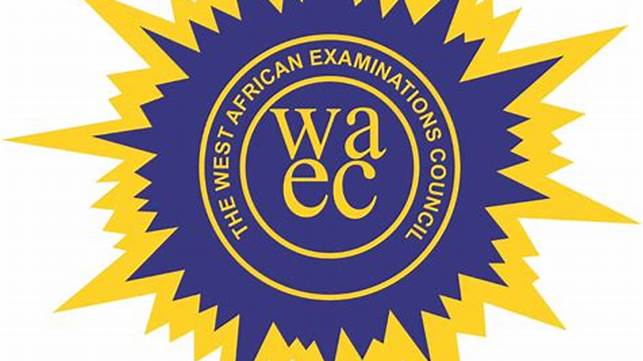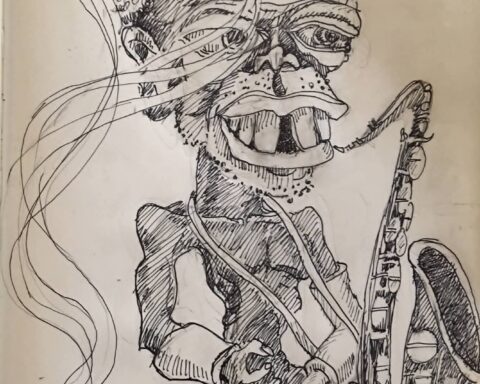The recent withdrawal of the 2025 released results of the Senior School Certificate Examination (SSCE) results by the West African Examinations Council (WAEC), is baffling and unprecedented. The development could mar the integrity of the examination. WAEC should be mindful not to allow new problems creep into its operations. It should not add more problems to its work that is already battling with endemic problems of examination malpractice, epileptic power supply, and computer glitches, among others. The action has raised widespread concern. Parents, guardians and students are disturbed by the results withdrawal and are wondering what happened.
WAEC, the other day, announced the temporary withdrawal of the 2025 WASSCE results it released for school candidates. The withdrawal, according to Council is due to technical glitches it discovered in the results release process. It asked the affected candidates to recheck their results in 24 hours. The promptness in resolving the hitches is commendable.
In a state statement signed by the Acting Head of Public Affairs, Moyosola Adesina, he said the decision followed an internal review which revealed “glitches resulting from a recently adopted paper serialization system aimed at curbing examination malpractice.” Adesina said the Council embarked on an innovation already deployed by an unnamed national examination body. The paper serialization was carried out in mathematics, English Language, Biology and Economics. However, an internal post result release procedure revealed some technical bugs in the results. WAEC noted that it had temporarily disabled access to the WASSCE 2025 results on the result checker portal in order to urgently rectify the identified errors. Is there no quality control to detect errors before the results were released?
“We extend our deep and sincere apologies to all affected candidates and the general public. The Council reaffirmed its commitment to upholding excellence, fairness and transparency in all its assessment processes. It urged the general public to continue to repose confidence in its integrity and service to the Nigerian child”
Certainly, all these statements and apologies wouldn’t have been necessary if everything went normal with WAEC and its results. The whole thing is coming to Nigerians as a big surprise. It is not known that WAEC had ever released results and later turned around to withdraw it for whatever reason. This development underscores the extent of malaise afflicting every sector of the Nigerian economy. The education sector is not spared.
WAEC said the withdrawal of the results was caused by what it called, “paper serialization” which was carried out in four subjects, namely Mathematics, English Language, Biology and Economics. What about the other subjects? Were they affected by the ‘paper serialization’ exercise? If they were affected, that means the entire results would be withdrawn. But if they were not affected, the question then is why and how were they not affected? WAEC should investigate why the paper serialization outing failed in order to avoid recurrence.
At the root of the whole saga is examination malpractice. WAEC adopted paper serialization to curb the pervasive examination malpractice. Examination malpractice has been an issue for fifty five years running. The first examination malpractice occurred in the WAEC May/June 1970 examinations. It was dubbed “expo.” Prior to 1970, there was nothing like examination malpractice or ‘expo’. How did “expo” come into the education system? What is fueling it and how could it be curbed?
The civil war ended in January 1970 and the WAEC examination coming after the war was due in May/June of that year. Some unscrupulous WAEC officials reportedly discovered that they could make some money by selling the WAEC question papers. They sold the question papers to their agents who in turn sold it to students in some schools. “Expo” at the time was not widespread as it is today.
The trial leakage worked as the WAEC officials who perpetrated the crime made their money. That was how the evil seed called examination malpractice (expo) was sown. At the early stage, it was wholly an affair between the disgruntled WAEC officials, their agents and some students. Parents, guardians and the schools were not involved. As a result of the leakage, the WAEC results of 1970 were cancelled in many schools. Many students had to resit the examination. However, the cancellation of the examination results did not stop the “expo,’’ rather it emboldened the students who became desperate to pass at all cost. Some began to contribute money in advance to pay the exam officials. More agents were enlisted who spread the leaked papers to more schools.
By 1972, “expo’’ had gained ground. It had become a serious issue. Parents and guardians had become aware of it. Most students had devised claver ways of organizing themselves, collecting money and paying the agents who supplied the live question papers. As most students became interested, a major problem was unfolding in the school system. The leakage soon graduated to issuance of fake certificates, unmerited scores, and falsified results and other manipulations, with the active connivance of some unscrupulous WAEC officials.
As the malaise spread, no WAEC officials were ever apprehended, or prosecuted. No school was blacklisted. No student was arrested or prosecuted. Like cancerous tumor, ‘expo” took root and became hydra-headed in the country.
Today, there is exam malpractice in the primary schools, secondary schools, universities and other tertiary institutions. No level of education is spared. What started with WAEC has spread to other examination bodies. Some unscrupulous officials of NECO and JAMB are joining the inglorious practice. The entire school system is polluted. Only a few schools, perhaps, missionary schools, are exempt.
The question is why this problem was allowed to assume this monumental scale. Why was nothing done to nip it in the bud in 1970? The most effective way to treat a cancerous tumor is to cut it off as soon as it is discovered, otherwise it would spread and lead to death. We must appreciate the fact that our education system is in dire straits. WAEC and other examination bodies should guard their girdle to ensure that the integrity of our examinations is preserved.
Dr. Onyekakeyah, former member of The Guardian Editorial Board, is a public affairs commentator and a Daily Query columnist.



























